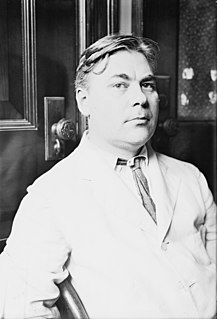A Quote by Henry Clay Trumbull
No parent ought to punish a child except with a view to the child's good. And in order to do good to a child through his punishment, a parent must religiously refrain from punishing him while angry.
Related Quotes
Without a sense of the shame or guilt of his or her action, the child will only be hardened in rebellion by physical punishment. Shame (and praise) help the child to internalize the parent's judgment. It impresses upon the child that the parent is not only more powerful but also right. Like the Puritans, Locke (in 1690), wanted the child to adopt the parent's moral position, rather than simply bow to superior strength or social pressure.
A conscious parent is not one who seeks to fix her child or seek to produce or create the 'perfect' child. This is not about perfection. The conscious parent understands that is journey has been undertaken, this child has been called forth to 'raise the parent' itself. To show the parent where the parent has yet to grow. This is why we call our children into our lives.
Say of him what you please, but I know my child's failings. I do not love him because he is good, but because he is my little child. How should you know how dear he can be when you try to weigh his merits against his faults? When I must punish him he becomes all the more a part of my being. When I cause his tears to come my heart weeps with him. I alone have a right to blame and punish, for he only may chastise who loves.
Conscious parenting is a new paradign shift in the way we look at our roles as parents. It's turning the spot light away from fixing the child and managing the child, obsession with all things that have to do with the child and the child centric approach and really focusing on the evolution of the parent. It about fully understanding that unless the parent has raised themselves to a certain level of emotional integration and maturity, they will really not be able to do true service to the child's spirit.

































